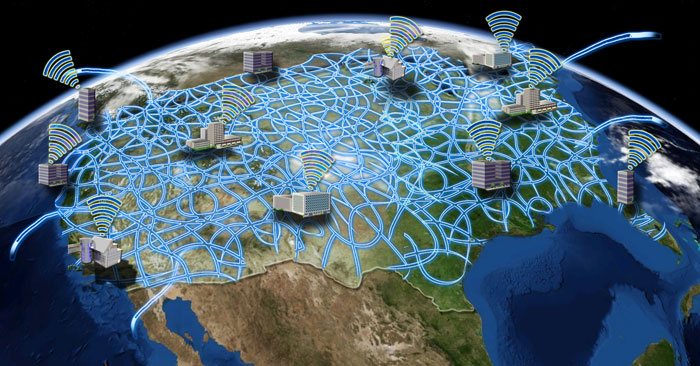Broadband Key to Smart Cities
This blog was cross posted on Commerce.gov.
 While the Internet has transformed everything from how we search for a job to how we communicate with friends and family, cities are looking to utilize digital technology to address stubborn challenges such as reducing traffic congestion, fighting crime, promoting economic development, and making local governments more accessible and efficient. To support such efforts, the Obama Administration this fall launched a new “Smart Cities” initiative and called for investing $160 million in federal research to help communities address 21st century challenges and support such initiatives as smart transportation systems that could adjust traffic management in real time or support expanded use of smart grid technology to better monitor peak energy usage.
While the Internet has transformed everything from how we search for a job to how we communicate with friends and family, cities are looking to utilize digital technology to address stubborn challenges such as reducing traffic congestion, fighting crime, promoting economic development, and making local governments more accessible and efficient. To support such efforts, the Obama Administration this fall launched a new “Smart Cities” initiative and called for investing $160 million in federal research to help communities address 21st century challenges and support such initiatives as smart transportation systems that could adjust traffic management in real time or support expanded use of smart grid technology to better monitor peak energy usage.
But in order to enable such innovations, most of these exciting applications depend on access to broadband technology. Expanding broadband access and adoption has been a key goal of the Commerce Department’s National Telecommunications and Information Administration (NTIA). While we have made great progress in connecting communities in the far corners of the United States, there’s still much work to be done.
As part of the 2009 American Recovery and Reinvestment Act, NTIA invested $4 billion to help upgrade or expand broadband in unserved and underserved communities and to promote digital literacy and broadband adoption. Our broadband grantees deployed more than 115,000 miles of new or upgraded network miles, connected nearly 26,000 community anchor institutions such as schools and hospitals and installed or upgraded more than 47,000 personal computers in public access centers. In addition, our grantees enrolled more than 670,000 people as subscribers to broadband service.
Some of these grantees are utilizing the networks built with the help of NTIA’s grant program to invest in smart-grid technology and other applications envisioned by the Administration’s Smart Cities initiative. For example in Alabama, Troy Cablevision, which received an NTIA grant to build a new broadband route between four southeast Alabama counties, partnered with South Alabama Electric Cooperative to provide advanced smart grid services to 17,000 electric customers. This service allows the cooperative’s customers to manage their power consumption and save money by avoiding peak usage time. In Mississippi, Contact Network Inc. received an NTIA broadband grant to deploy a middle-mile network throughout 12 economically distressed counties in the Mississippi Delta region and expand high-speed Internet access in underserved areas of 16 counties in southern and central Mississippi. As part of the project, Contact Network worked with the Mississippi Department of Transportation to deliver Intelligent Transportation Systems and public safety applications to priority state roadways to relieve congestion and improve safety.
Our broadband grant program is nearly complete, but NTIA is still working with communities to overcome their broadband challenges. Through our BroadbandUSA initiative, we are providing technical assistance to communities and holding workshops around the country. We’ve also published several resources to assist communities, including a Broadband Funding Guide and an Introduction to Effective Public-Private Partnerships. More tools are on the way in 2016, related to the benefits of broadband, forming partnerships, sustainability, and broadband planning toolkits. And as co-chair of the President’s Broadband Opportunity Council, NTIA is working with two dozen Federal agencies to implement recommendations on ways to eliminate regulatory barriers to broadband deployment and to encourage investment in broadband networks and services.
At NTIA, we are working with communities to ensure they have access to broadband so they can take advantage of the benefits presented by many of the Smart Cities initiatives and better serve their citizens.
